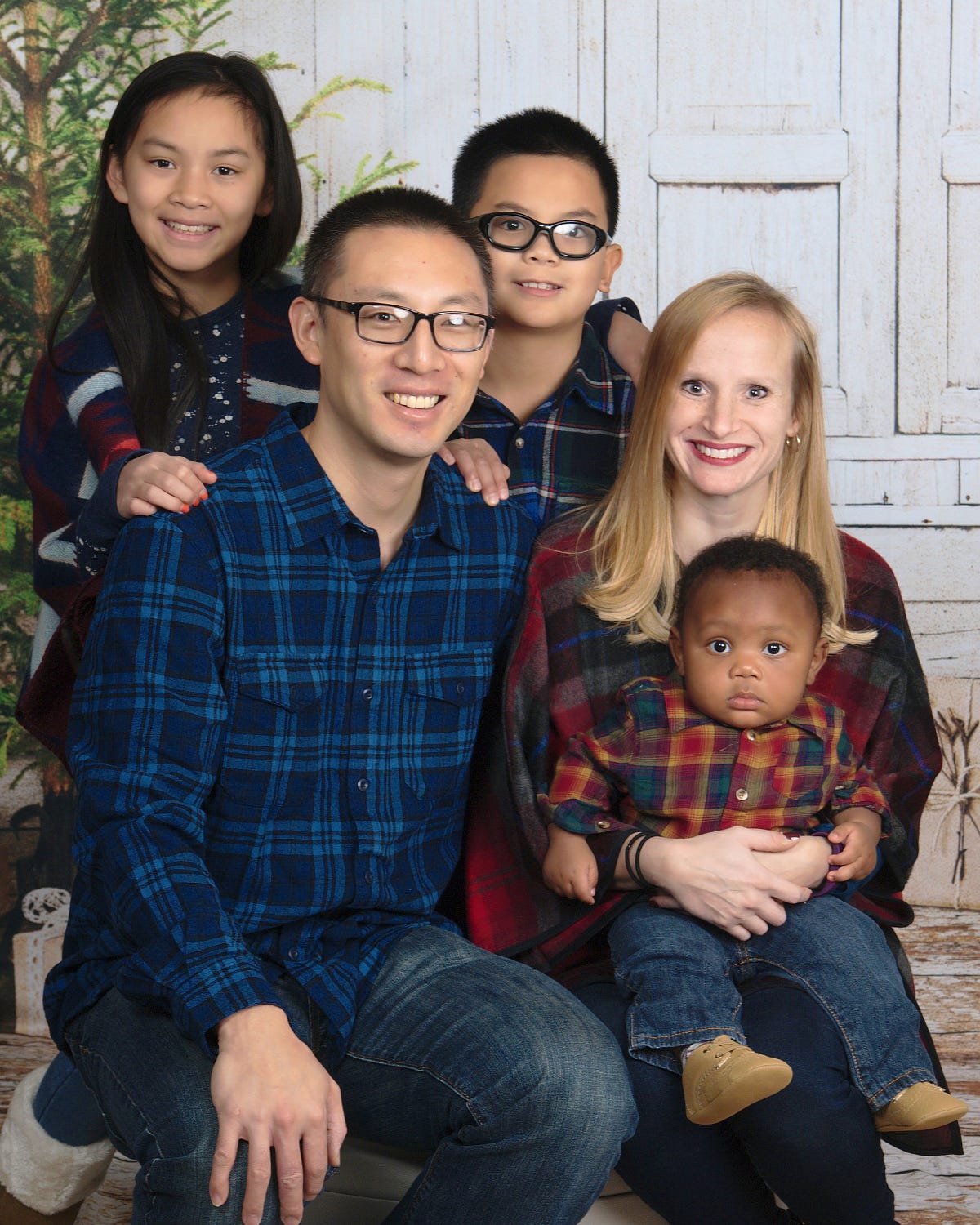 I've had the privilege of guest-blogging at EmbraceRace. Here's the first of two blog posts I've written so far. You can also find it here. I'll post the second one tomorrow.
I've had the privilege of guest-blogging at EmbraceRace. Here's the first of two blog posts I've written so far. You can also find it here. I'll post the second one tomorrow.***
Reflections on Hyphenated Identities & My Hopes for My Children
As a second-generation (first in the US) Taiwanese-American, I am familiar with the “hyphenated” experience: speaking one language at home and another outside the home, sometimes identifying with both cultures and sometimes neither, struggling to reconcile how I self-identify with how others perceive me.
So
when my wife, who is Caucasian, and I were in the process of adopting
our first child, from China, I read with great interest stories of
previous waves of Chinese girls adopted into white families who were now
in their adolescence and heading out into the world. Many experienced
great dissonance as people saw them as Asian, whereas they themselves
had no connection to that identity, having not been treated as such
within their own adoptive families. In some cases, these identity crises
were heart-wrenching.
I
am glad to have my own “hyphenated” experience to draw from in helping
Jada — and, subsequently, Aaron, whom we adopted from Taiwan — navigate
this sense of being from one country, and perceived accordingly, while
growing up in a vastly different context. In a sense, they are having
their own “hyphenated” experience: normal kids embracing their adoptive
status, American in every way but from Asia.
It
helps that we live in a diverse urban neighborhood, in the context of
which they are learning about the intersections among race, wealth,
power, and justice. I hope they will come to embrace the unique
perspectives they have and the special roles they may be able to play in
this world because of them.
This
year, we completed our third adoption. Asher is our first domestic
adoptee, first newborn, and first African American. I sometimes imagine
him as a stand-up comedian, lamenting his confusing upbringing: “I’m
black but have a Jewish first name, an Asian last name, a Caucasian mom,
and an Asian dad and siblings!”
It
will be interesting to see how he self-identifies. He will be seen as
black but will not have grown up with black parents or siblings. As with
our other two kids, the aim as parents is to help him connect to his
heritage, so that even if he isn’t brought up within that heritage, just
as my other two haven’t grown up in China and Taiwan, he respects that
that is part of who he is and it becomes an important part of his
identity.
Given
how fraught it is to be a black man in America, Asher’s “hyphenated”
experience will be an interesting one, for sure, one that will require
special attention and instruction. It is my hope and prayer that all of
our children will own the whole of their identities, proud of where they
came from and what they look like while being able to navigate across
cultures and perspectives. That would make me happy as a parent and
richer as a person.
No comments:
Post a Comment